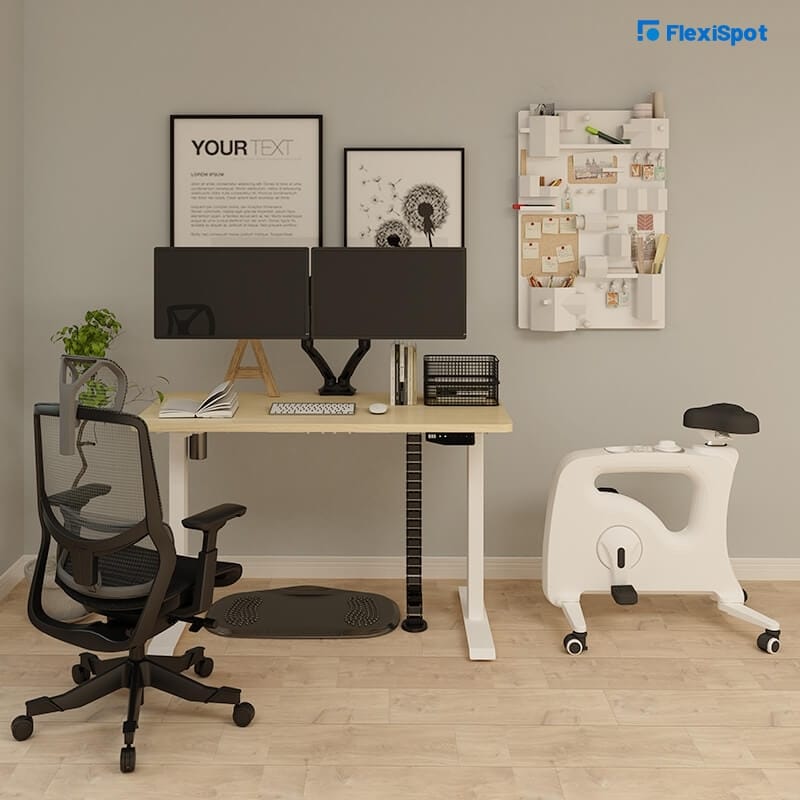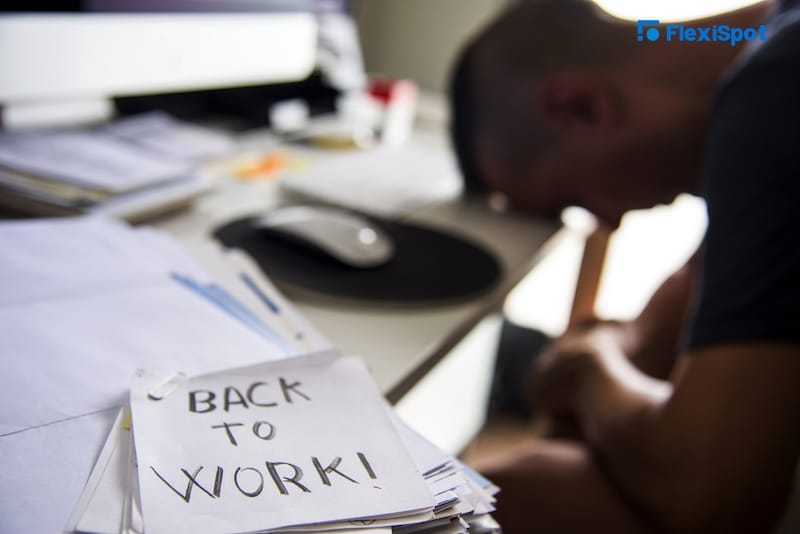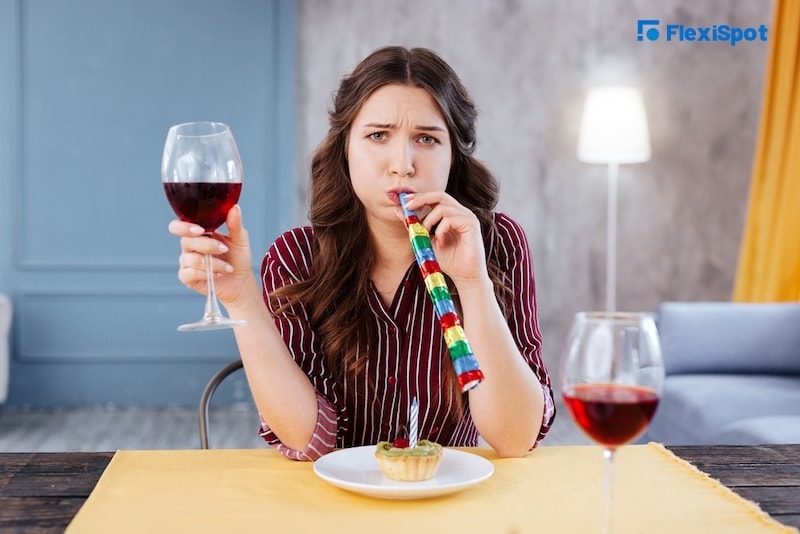Ever noticed the surge of energy that you experience as we approach the end of the year? Maybe this comes from the realization that you get to press the restart button on your aspirations, goals, dreams, and a ‘clean slate’ on your shortfalls from the fallen year. On the other hand, it could just be an anticipation for the end of year festivities, the joy of seeing family, and closing shop for the holidays.
Regardless of your reason for experiencing extra cheer as the year ends, one thing is for sure- the post-holiday blues that accompany these feelings are not anything anyone looks forward to. It doesn’t help that it feels like you have to turn off that ‘out-of-office’ notification the minute the last New Year’s fireworks pop. The new goals, fresh expectations, and the resetting of the clock certainly offset a lot of heavy emotions for many people.
But time waits for no one. You cannot be stuck in your feelings with career goals, family obligations, personal aspirations, societal commitments, and everyday life on the line. You need to get up and level up with your responsibilities. And, we understand that that is easier said than done. So, we’ve compiled a list of solutions to your post-holiday blues this year in the hopes of getting you back to your most productive self as early as possible.
What are Post-Holiday Blues?
After the holiday excitement and the cheerful expectation that comes with it, there’s usually a downturn, also known as a post-vacation syndrome, anxiety, or sadness that a lot of people experience. Most of the signs of post-holiday blues are similar to those of anxiety or depression. They manifest as restlessness, low energy, agitation, trouble concentrating, and worry. However, unlike severe depression, the sadness (blues) is more transient than chronic and fades away quickly with simple coping mechanisms that most people master throughout their lives.
What Causes Post-Holiday Blues?
There are several reasons why you could be feeling down around the holidays. Here are a few of these reasons:
Sugar and alcohol-fueled diets, which many of us survive on over the Christmas season, could be a factor. Alcohol is a well-known depressant, and many studies have linked modern-day depression to unhealthy feeding habits. Inevitably, the cumulative indulgence in these unhealthy habits over the December holidays is bound to catch up with a lot of us.
Considering the fact that Daylight Savings occurs relatively close to Thanksgiving, changing the clocks back by one hour might impact our functioning and might require an adjustment period.
We're emotionally drained. Another likely cause of post-holiday sadness is the significant burden of negotiating challenging situations and friendships while maintaining your composure during the holidays.
Financial strain can be brought on by credit incurred, particularly over the holidays leading to stress as the new year begins.
Overcommitment- Overexerting yourself by saying ‘yes’ to almost everything ‘required of you’ during the holidays can indeed be stressful. Worse off is that the exhaustion carries over to the following year.
Sleep deprivation - The holiday season can disrupt your sleep, whether it's due to the pile of work that needs clearing before the holidays, the stress of financing gift purchases and travel, time spent attending events, or the general thrill of the holidays. Needless to say, insufficient sleep takes a heavy toll on our emotions and coping mechanisms.
How to Get Rid of Post-Holiday Blues
Getting yourself out of a post-holiday slump can be easy with the right tools and techniques at hand. Below are a few:
1. Be Patient and go Easy on Yourself
If the post-holiday blues are getting to you, one of the most essential things you can do is examine your feelings and emotions. "To be diagnosed with clinical depression, an individual must be unhappy or agitated virtually every day for at least two weeks.” This helps rule out chronic depression.
But, whether or not you have depression, persistent unhappiness, and a lack of enjoyment in things you used to love are indicators that you need to make some adjustments and potentially get assistance. The post-holiday blues won't last forever. Cut yourself some slack, meanwhile. Don't criticize yourself for how you're feeling; instead, spend the time you have to regain your balance. If your symptoms don't go away, you should see a mental health specialist.
2. Self Care is Important
Specialists advise you to get enough sleep, exercise regularly, and eat a nutritional diet to improve your mood and control anxiety and depression. These habits typically fall by the wayside over the holiday season, what with late-night events, sugary treats, and extensive to-do lists. If you're having emotional difficulties, re-establishing healthy habits as a regular and non-negotiable part of your schedule is critical to getting yourself out of your funk.
3. Instead of Texting, Have a One-on-one Talk/ Phone Call
Seek out somebody you love being around or speaking to; if you can’t meet them physically, make a phone call. Speak to them about the most pleasant aspect of your vacation or ask them how they spent their holiday. It would be courteous to send them an SMS message that says, "Please pick up." I'd like to talk to you for several minutes." Keep the conversation airy and light to get a good vibe going.
4. Make an Effort and Leave the House.
By getting out of your house, you reconnect yourself with not only the outdoors but movements, people, wafts of pastries, hooting, birds (if you’re so lucky), etc. This burst of sensory stimuli gives your brain something else to focus on other than your dull emotions. Distractions work wonders at shifting focus, so target a place with a lot happening to ensure you don’t get a chance to focus on the negatives.
5. Get Some Exercise
When you're down in the dumps, it's natural to want to sit and stare into nothing or binge-watch a show that validates your sad feelings. Before this catches you in its clasps, go for a run or indulge in some physical exercise. Exercise is known to release endorphins which trigger good feelings. Aerobic workouts such as running, swimming, biking, jogging, farming, and dance get the blood really coursing through your body, re-energizing your organs. And, it doesn't have to be a grueling gym session. Even something as basic as going for a stroll can be beneficial.
6. Reduce Your Alcohol Consumption
During the holiday season, alcohol is ubiquitous, and it's a lot of fun to drink. But don't forget that taken in large quantities, it can lead you to feel down, irritated, and foggy the following morning. Alcohol consumption also disrupts regular sleep patterns, which affect restorative functions.
If you’re experiencing post-holiday blues, cutting down on alcohol will bring you immense benefits. For one, you can redirect the resources to more beneficial projects. Again, you get to face January with unfogged clarity. Hangovers make everything feel worse than it actually is, so foregoing that bit this January will be amazing for your mental well-being. So, consider a detox or switch to water, at least until you’re in a better place mentally.
7. Generate a To-do List
Assign yourself something to do or anticipate, such as a home renovation project, a holiday, or a weekend getaway—anything that will divert your thoughts and attention. Even if it's not as exciting as traveling, write it down. You could even plan a chores list and begin crossing things off as you get them done. Checking things off on a to-do list has an oddly satisfying effect for most people, which offsets any sadness.
8. Start Cooking
Cook something that doesn't smell like a holiday dish to give the house a fresh scent. You don't have to modify everything you consume, but increasing vitamins and nutritional foods while reducing fried meals and sugar may help you feel better. The preparation process is also engaging, which brings a form or order and a sense of routine. Once you're back on ‘normal programming’ it becomes easier to dig yourself out of a slump.
9. Reframe Your Perspective in January and February.
The first two months of the year are often associated with a cocktail of emotions- most of which are negative. Sure, finances for the average person are at their worst after major holidays, but resigning to that ideology magnifies the problem beyond what it actually is. Again, nothing exciting really happens in January, which drags out the month.
You can use these hunker-down months to close the gap on house organizing initiatives, reading, Tv series, family activity evenings, or anything else you didn't have time for the rest of the year. Remember that February is only a few weeks old, the days are growing longer, and Spring is on the way.
10. Set Realistic Expectations
One of the reasons we get the "holiday blues" is that we have unreasonable expectations for the holidays. It's portrayed as this magical, beautiful perfect time in the media and by holiday marketing gimmicks. But, this only puts more pressure on people to attempt to match up to what the holidays are portrayed as. The reality is that families do not often get along. Many people are under financial and other kinds of hardship.
It doesn’t help that the economy has been unfair for the vast majority, creating unprecedented tension in people's lives across all spectrums. Rather than over-romanticize the holidays, concentrate on two items you genuinely love about them and devote your energies to them. We're more likely to appreciate the holidays when we have reasonable expectations. Accepting that the holidays can be as unfulfilling as other aspects of life makes it much easier to deal with unmet expectations and to avert the post-blues.
11. Practice Gratitude
Even though these are challenging times, having reasons to be grateful allows us to face the most challenging parts of the new year with new confidence. It is beneficial to our health to take a minute to think about what we have and, more significantly, the relationships we have with friends and family. It can also facilitate a better understanding of how we can assist people who are caught up in post-pandemic difficulties.
12. Make a Significant Purchase
Your post-holiday blues are probably because you got underwhelmed with the gifts they got you over the holidays (it happens). Or, the gifts were perfectly fine, and you liked them. The question is, in all that giving, did you get yourself something? If not, then you need to get into the habit of self-appreciation. Buy something that plays into your self-reward system. The beauty of this particular practice is that you can’t please yourself with your purchase.

You could upgrade your tech, pay for a vacation or take our recommendation- buy yourself some ergonomic furniture. Grab yourself an ergonomic seat from our range, and pair it with any of our height adjustable standing desks. This pair will help you stay productive at work, reduce the effects of sedentary living, and allow for comfortable working through the next couple of years as Flexispot products are highly durable.
Final words
Taking control of your emotions is the quickest way to break free from the post-holiday blues and lock the door on that wrong chain of the shortfall. It is as simple as that. Have a wonderful new year!





